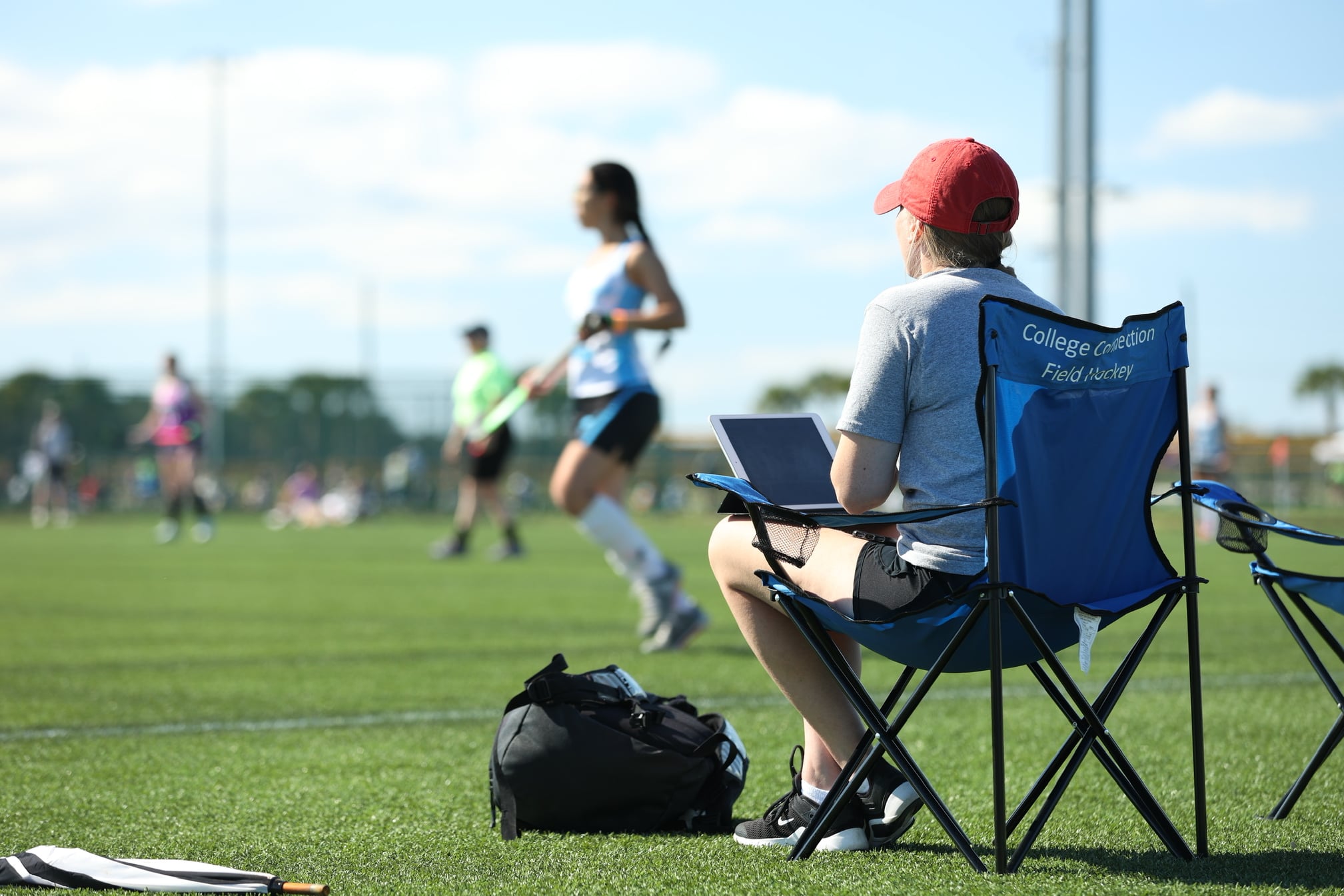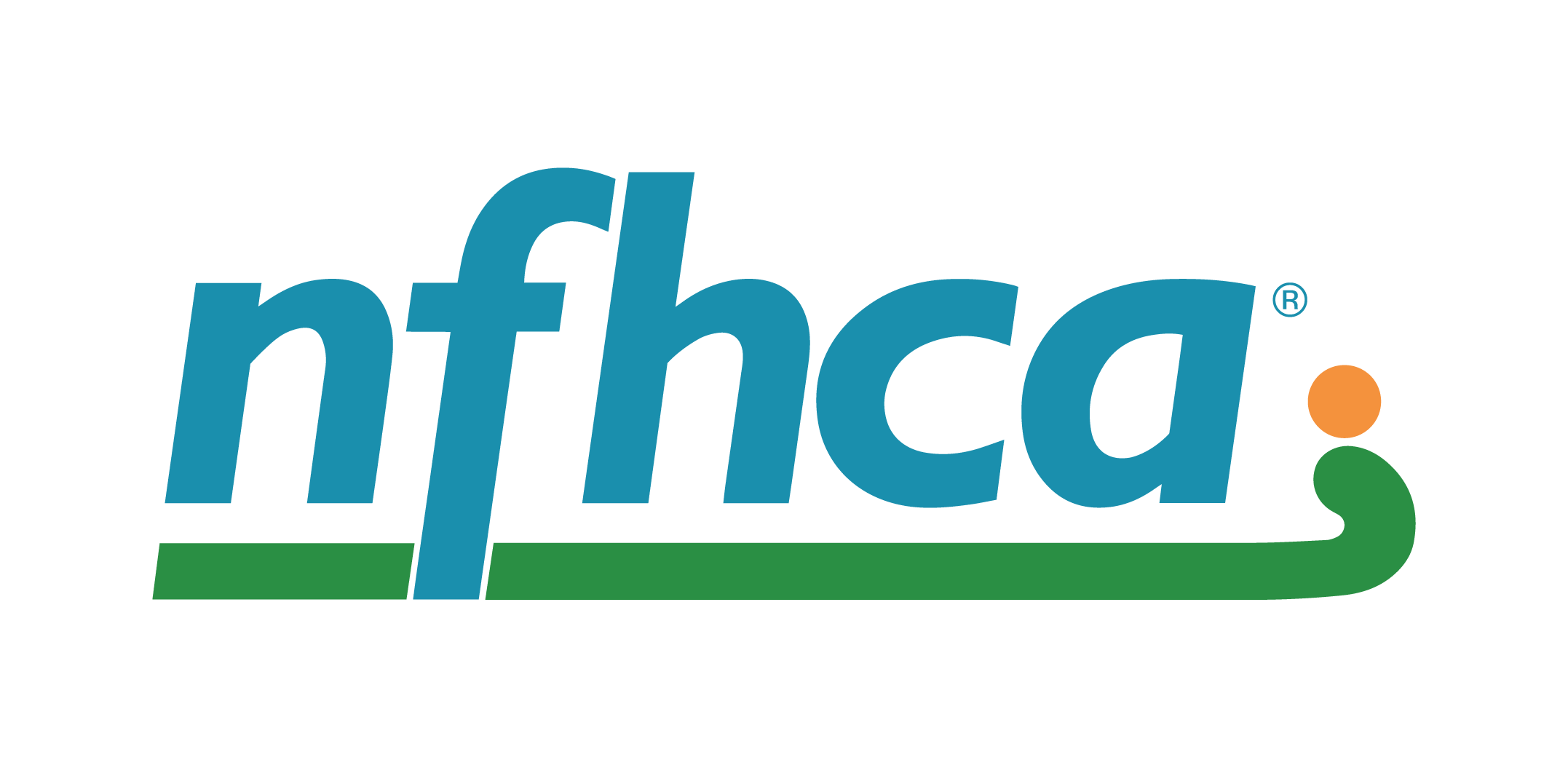Eight Tips to Rest and Restore Your Well-Being

By NFHCA member, Bobbi Moran
When I was a kid looking for the answer to a question my mother would ask, “What does your gut tell you? Go with your gut.” Thinking back, I am incredibly grateful for learning this technique as a child. A gut check requires that we turn our energy and attention inward and take a moment to reflect on how the options in front of us “feel” to our body. Many of us have been programmed to turn to the outside world to help answer questions for our inside world, especially ones that relate to mental health and well-being. When asked to share some thoughts for Mental Health Awareness Month with our coaching community, I began to think about the need to create balance in a world filled with distractions and wanted to offer a few tips on ways to refill our own wells.
We are coaches, teachers, educators, mentors, friends, and family members who are asked to give physically, mentally, emotionally, and socially all day, every day. When we are on the field, we are truly “on” for our student-athletes, parents, administrators, and colleagues. There is only so much we each have in our reserve tank before our own well runs dry. Our ability to manage and navigate the stressors of daily life fluctuates, and it has become increasingly more important to be able to self-regulate. A mantra I often share with my coaches and student-athletes is: “Your YES doesn’t mean anything until you learn how to say NO.” In other words, honor your limitations. We are not bottomless and some days the well runs dry long before the sun goes down. What happens then? We leave ourselves open to reactive responses rather than thoughtful, gut-centered thinking that allows us to reflect fully on the impact of our words and deeds.
The term well-being seems to be top of mind for many of us today. To preserve my own sense of balance I try to remember that there are always only three things that are fully within my control. Remembering this helps me approach situations that are unsettling with a clearer sense of purpose. We can always control:
- What we say.
- What we do.
- How we choose to feel about any given situation.
The rest is out of our control. Trying to control the uncontrollable wastes valuable time and energy and puts our body and mind into an unsettled state.
When the sympathetic nervous system (SNS) directs the body’s rapid involuntary response to dangerous or stressful situations our fight, flight, or freeze response is initiated. In these situations, the primitive brain takes over, and our ability to make rational, thoughtful, frontal-lobe decisions deteriorates. The autonomic nervous system’s answer to the SNS is the parasympathetic nervous system (PNS). In an ideal parasympathetic state, the body, mind, and breath are all working together, and our basic body functions are working as they should. Every day things arise that threaten our ability to regulate these systems. Remembering that there are always three things we can control and practicing a few of the mental health tips below can help transition us from a sympathetic state to one of homeostasis.
Here are a few of my go-to reboots to rest, restore, and reinvigorate my whole self:
1. Unplug and Get Outside.
Taking a walk, getting away from our phones and computer screens for even 15 minutes can help to reset the central nervous system.
2. Find a Buddy.
Having someone to share your thoughts, feelings, concerns with is incredibly helpful. Burdens are more easily managed when they are shared. This includes, but is not limited to, a mental health professional. Leverage your network of other coaches who may be dealing with similar stressors. Be encouraged and courageous to share your reality.
3. Breathe
Heart-focused breathing from the HeartMath Institute recommends that you “breathe in about 5 to 6 seconds and breathe out 5 to 6 seconds.” Be sure your breathing is smooth, unforced and comfortable. Although this is not difficult to do, it may take a little time to become used to it, but eventually you will establish your own natural rhythm.” It can do wonders to reset the sympathetic nervous system (the fight, flight, or freeze response).
4. Foot Massage or Reflexology
Every organ in your body has a corresponding point on the soles of the feet. Before bed consider giving yourself a well-deserved foot massage. Consider adding some essential oils, which can boost your mood, help you relax, and relieve stress and anxiety. Check out this foot reflexology chart and info from the Cleveland Clinic on essential oils and their benefits.
5. Drink Water & Eat Nourishing Food
Water is the best thing you can do for your body. Water is your body’s principal chemical component and makes up about 50 to 70 percent of your body weight. Your body depends on water to survive. Every cell, tissue, and organ in your body needs water to work properly. Support the body’s production of serotonin and vitamins and minerals with nourishment.
6. Laugh
Laughter is an amazing reset for the nervous system. Find something, someone that makes you laugh. This YouTube clip of a baby laughing does wonders for me, what’s your go to?
7. Get your Eight Hours
This is something I am working on but winding down at the end of the day and shutting off electronics helps our body begin to prepare for sleep. See if you can keep your electronic devices out of the bedroom to resist the temptation.
8. Leverage Relevant Apps to Help
Here are some I love: Aura, Calm (free for educators), Headspace, Insight Timer.
The best advice is finding something that works for you and not beating yourself up for slipping. Treat yourself like you would treat a best friend and listen to your gut.
Feel free to reach out with questions. In the words of Frasier Crane, “I’m Listening.”
Disclaimer: If you are dealing with any sort of mental health issue first seek the advice of a qualified medical professional.
About the Author
Bobbi Moran is the Director of Athletics at Kent Place School in Summit, New Jersey. She will be taking on the role of Director of Athletics at Thayer Academy in Braintree, Massachusetts in July 2022. She is a Usui Reiki Master and completed her 500-hour yoga teacher certification while on sabbatical in Bali. She has been a personal trainer and fitness counselor for more than 25 years.
NFHCA Blog Disclaimer
All content on this blog is for informational purposes only and should not be interpreted as a substitute for NCAA compliance or legal advice. The NFHCA recognizes that the accuracy of the content and opinions in this blog may change over time. The blog site may contain links to other websites or content belonging to or originating from third parties. Such external links are not monitored or endorsed by the NFHCA and the NFHCA does not control such external websites or their content. The NFHCA will not be held responsible for the content of any message from external websites or contributing authors.
The National Field Hockey Coaches Association (NFHCA) is a nonprofit organization serving field hockey coaches and supporters of the game from across the United States. The mission of the organization is to champion, strengthen, and celebrate field hockey coaches and the game. The NFHCA strives to cultivate and recognize the professional contributions of its membership and to foster and promote the growth of the sport. The NFHCA is responsible for providing a recognizable presence and voice in regard to legislation affecting the sport as well as interscholastic and intercollegiate programs.
